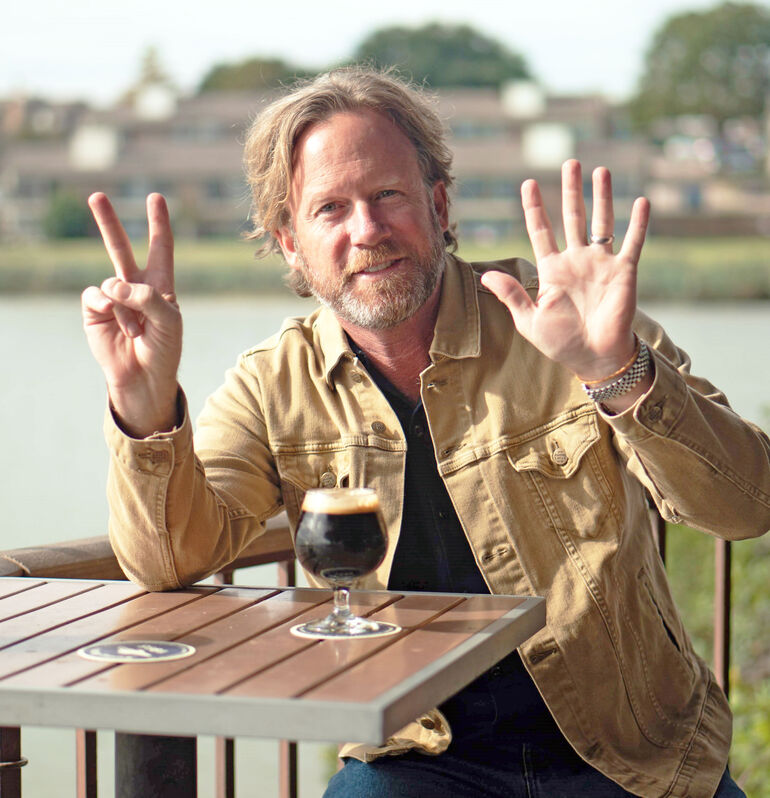Start 14-Day Trial Subscription
*No credit card required

Flying Saucer Celebrates 25 Years of Craft, Food and Fun
In June 2020, national “neighborhood pub” Flying Saucer Draught Emporium will celebrate its 25-year anniversary, and in April 2020, Dallas gastropub Meddlesome Moth will celebrate its 10-year anniversary. These innovative restaurants have enhanced awareness about local craft beers from Texas to North Carolina. This year, the Flying Saucer and Meddlesome Moth are planning a slew of special events in honor of the milestones and offering anniversary beer experiences at each location.
Flying Saucer operating partner and Meddlesome Moth co-founder Keith Schlabs said “Beer Knurds,” members of the Flying Saucer’s “UFO Club” of loyal customers, can expect tastings, happy hours, beer festivals and special guest appearances. The restaurants will also hold beer dinners with guest speakers from the Saucer’s and Moth’s favorite breweries. The Flying Saucer restaurants are organizing some events in coordination with craft brewers, including Dogfish Head Brewery founder Sam Calagione and Avery Brewing founder Adam Avery.
“There will be anniversary events at different times at all Flying Saucers throughout the U.S., from Little Rock to Memphis, Charlotte to Sugar Land. Most of our staff and customers have been with us for years. It should be a fun celebration throughout the year,” said Schlabs.
Schlabs said FSDE and Meddlesome Moth will present special beers and host new guest speakers. They will also offer anniversary glassware and t-shirts throughout 2020.
“Our goal is to continue to grow the beer culture, encouraging enthusiasm about craft beer and offering a fun, laid-back atmosphere,” said Schlabs.
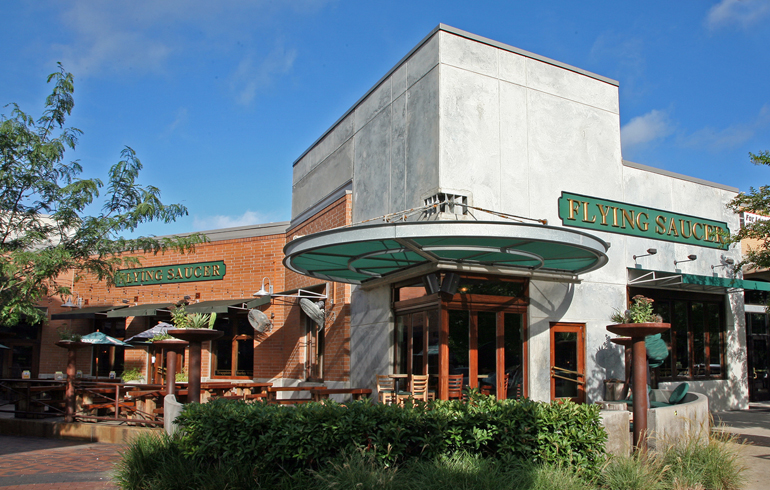
The Future of the Restaurants
Schlabs said the Flying Saucer’s newest location, The Sound at Cypress Waters, showcases the brand’s interest in healthy dining options in a “fast casual” setting.
“The new Flying Saucer model, which opened in June, is right on the shore of North Lake. It offers live entertainment in a development with 10,000 office workers. It is about 3,500 square feet, our smallest footprint for a Flying Saucer to date. Here we offer beer and wine only, although you can take crowlers and growlers to go. We have a special food menu with bowls, salads, and sandwiches, featuring wild-caught salmon, grass-fed beef, and free-range chicken,” said Schlabs.
Flying Saucer and Meddlesome Moth also engage with brewers and experiment with products in ways that benefit one another.
“Occasionally, when the Moth produces something that’s interesting, the Saucers will try to pick that up. For example, the Moth’s craft cocktail program has somewhat influenced the Flying Saucers. In turn, the Flying Saucers’ close relationship with craft brewers helps the Moth. The brewers know that we will sell their beers. I think that is why they’re interested in offering the Moth special opportunities,” said Schlabs.
Schlabs said one of the secrets to Flying Saucer’s success is the emphasis on freshness.
“I find that I am buying beer like I used to buy milk – checking in the back for a better canning date,” said Schlabs.
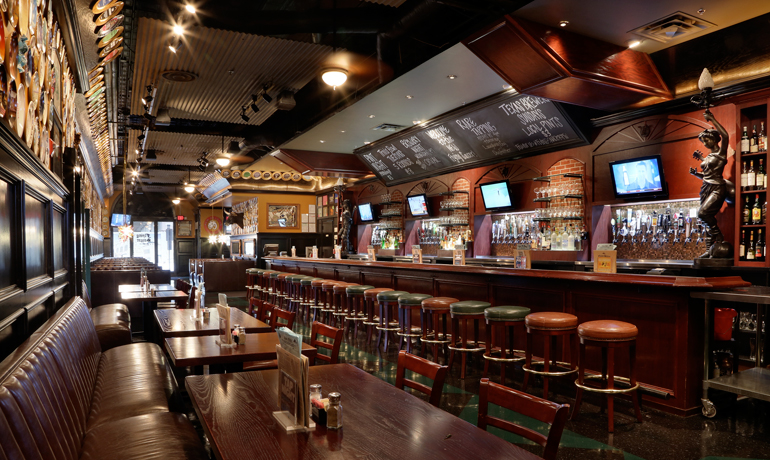
The Origin of Flying Saucer
In 1995, after managing the first brewpub in Texas, Yegua Creek Brewing Company in Dallas, Schlabs left the restaurant with the hope of founding a similar establishment of his own. While scouting a site in Sundance Square in downtown Fort Worth, he met restaurant owner Shannon Wynne.
The two had a discussion, which culminated with Wynne founding the first Flying Saucer on the site Schlabs had visited. Wynne hired Schlabs to be his first general manager and beer director.
“When we were creating the first beer menu, it was difficult for us to pronounce half the beers. We had so many imports. We were still learning about beer. I thought, ‘How do I get people to order these [beers] if they can’t even pronounce them?’” said Schlabs.
Schlabs said his concern led to him making FSDE into a place where customers could learn about beer.
“We envisioned the (first) Flying Saucer as a neighborhood beer bar, a place for people to go after work. Yet we also wanted to create experiences where our customers could taste new beers. We began a tradition of ‘flight nights,’ positioning specially curated beers so people could learn about them,” said Schlabs.
Schlabs said early on he realized that Sunday and Monday nights were very slow. But the Saucers needed to move beer.
“We created a pint night on Monday, where we sold all draughts for $2. We also created the society of “Burn a Turd,” or “B.A.T.,” where people could smoke a cigar and drink cheap craft beer,” said Schlabs.
Schlabs said he learned a lot in the early days of the Flying Saucer.
“I remember offering the strongest Belgian beer on tap, which was designed for a small pour, for $2 a pint. The distributor and importer were amazed at how much we would sell in a week. We were selling maybe six kegs a week,” said Schlabs.
When the Fort Worth location built a strong following, Schlabs and Wynne started establishing more Flying Saucers around Texas, including Houston, San Antonio and The Lake in Garland.
“We built a German-centric menu with brats, sauerkraut, pretzels and cheese boards. But we kept our focus on the beer, bringing dozens of local, regional and international craft brewers to our bar. We trained our staff to understand beer and reach out to the top producers. This helped us present the best beers in the market to our customers,” said Schlabs.
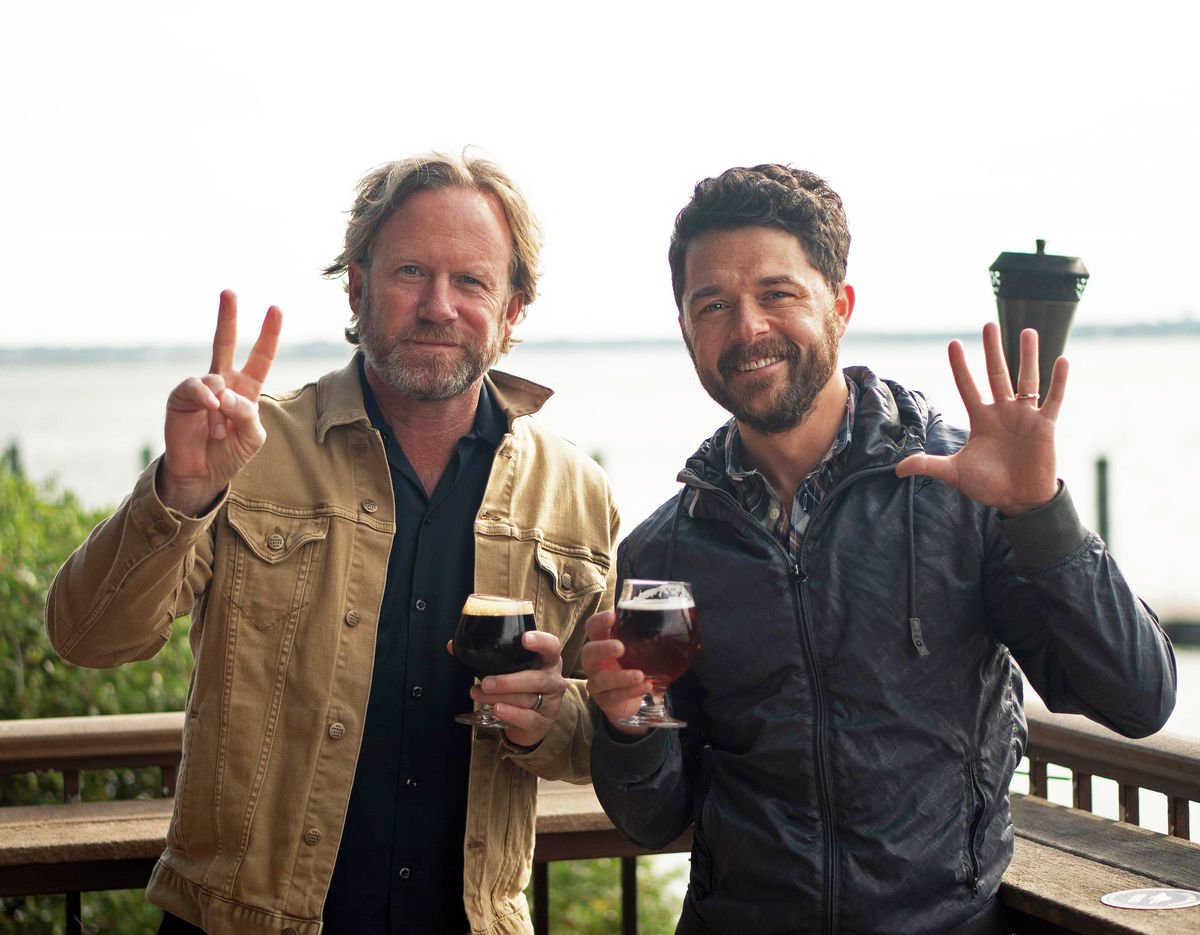
How the Saucers Spread
After the Flying Saucers became a success in Texas, Schlabs and Wynne introduced the brand to other states. The pair began with locations in Arkansas and Tennessee in 1998. They spread the Saucer to North Carolina in 2000, South Carolina in 2003 and Missouri in 2008.
“We decided to put a Flying Saucer wherever Southwest Airlines would fly. We didn’t do much demographic research. We asked ourselves, “Is this a cool town? Do they have good beer?” The success of our previous locations helped. Dirt traders started calling Shannon,” said Schlabs.
Schlabs and Wynne give their general managers the freedom to organize all kinds of events, including community outreach, beer festivals and special tastings.
“If Flying Saucers want to be style-heavy for an event or focus on a couple of local brands, that’s fine. They are not tied to a corporate mandate. Each Flying Saucer has its own beer culture. We do try to keep each Saucer’s selection well-rounded. The bottom line is to support good beer,” said Schlabs.
Schlabs said key people at headquarters keep an eye on all the beer each Saucer orders.
“We also have beer discussions with all of our general managers once a week,” said Schlabs.
The Flying Saucer promotes a standard of excellent service by making new staff undergo a week-long training.
“We give every staff member a substantial foundational knowledge of the culture of the Flying Saucer, its standard for quality service, and how to present beers as the brewers intended,” said Andrea Coan, director of training for FSDE and a Certified Cicerone(R).
Coan said the training helps everyone from servers to marketing officers “have an intellectual conversation about almost every popular style of beer a customer could ask about.”
“We teach our staff about flavor, color, body and finish, separating beers by style and flavor profile. No other company or draft bar does training that way, so we stand out,” said Coan.
“Many of our past employees are now working for the breweries we support,” said Schlabs.
Today, FSDE has 16 locations, each with about 85 beers on tap and 150 bottled beers. Altogether, the restaurants offer well over 250 different beers made in over 100 brewing styles. Offerings include unique beers such as Foothills Brewing’s Sexual Chocolate stout and Jester King Brewery’s Nocturn Chrysalis, as well as more popular offerings like Community Beer Company’s Mosaic IPA.
“We still remain loyal to the OG and even feature Duvel on draft at our Houston Saucer and the Moth,” said Schlabs.

Teaching All About Beer
An enjoyable aspect of the Flying Saucer is its organization of tours by beer writers who come to speak at every Flying Saucer location. Customers like the interactions and book signings.
“In early 2000, we hosted Garrett Oliver, brewmaster of Brooklyn Brewery and author of “The Brewmaster’s Table.” He sold out performances from Texas to Tennessee. He also helped us pair the food on our tasting menus with beers that we sold. Oliver helped create a memorable experience for our customers and staff. He inspired us to continue that tradition (of showcasing guest speakers),” said Schlabs.
Other speakers at Flying Saucers have included “The Beer Hunter,” Michael James Jackson, Stephen Beaumont, author of “All About Beer,” and Tim Webb, author of the “Good Beer Guide” books.
The company headquarters also runs the UFO Club, which has about 150,000 members. Beer Knurds join the club and receive a Flying Saucer t-shirt and a digital membership card. The card counts the type of beers that the member tries on their visit, with a maximum count of three beers per visit.
“The goal is to encourage each Beer Knurd to try all of the different beers and hopefully find some new favorites. (Joining the UFO Club) definitely pushes people out of their comfort zone,” said Schlabs.
After a Beer Knurd has tried 200 different beers, their name goes on a plate in the Ring of Honor.
Many loyal Beer Knurds visit multiple Flying Saucer locations.
“Our home Flying Saucer is in Addison, but we’re retired and we travel a lot. So far, we’ve been in every Flying Saucer except the one in the DFW airport. We’re scheduled to go there in November,” said Ben McWilliams, a Beer Knurd and longtime customer of Flying Saucer and Meddlesome Moth.
Ben McWilliams said he and his wife Barbara like coming to the Flying Saucers because of the friendly staff and casual feel.
“It’s a relaxed and comfortable atmosphere where you can always try a new beer,” said Ben McWilliams.
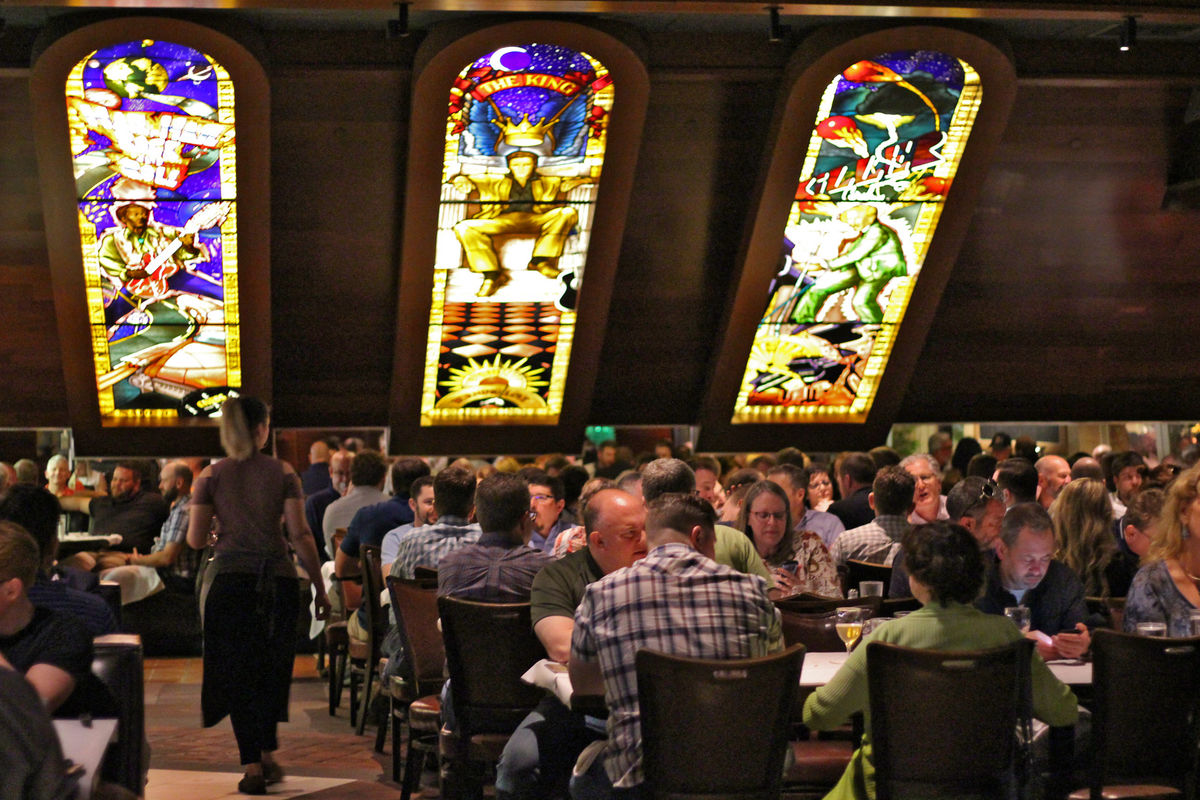
The Birth of Meddlesome Moth
Meddlesome Moth was born from the success of FSDE. “We saw a need for a restaurant that focused on craft beer,” said Schlabs.
In 2010, Schlabs and Wynne opened the first chef-driven gastropub in Dallas’s Trinity Design District.
Schlabs said the inspiration for the Moth initially came from the U.K. DGBG Kitchen & Bar in New York City and The Tasting Kitchen in Venice, California were also heavy influences.
“I remember visiting The Ram Brewery in London with Shannon (Wynne) early on as the Flying Saucer was expanding. We spent time with John Young and his brewers, touring many of the Young's Pubs that his family owned. One in particular was chef-driven and more upscale and polished than the others. I think that was part of the inspiration for us to open Meddlesome Moth several years later,” said Schlabs.
Schlabs said the Moth is very proud of its current executive chef, Jennifer Otsuki.
“She was our original sous-chef when we opened our doors. She understands flavors and has a knack for pairing food and beer,” said Schlabs.
Meddlesome Moth offers a number of special, high-end beers, from Saugatuck Brewing Company’s Neapolitan Milk Stout to Saint Arnold Brewing Company’s Bishop’s Barrel No. 16.
The dinner menu is just as diverse, featuring New Orleans BBQ shrimp, Tandoori chicken, Wagyu beef carpaccio and Paleo fried rice.
Matt Quenette, beer director and assistant general manager for Meddlesome Moth, said in 2010, it was very difficult to find a good restaurant that had a well-curated beer list.
“Now craft beer is everywhere around us. In order to be competitive, the Moth has had to evolve. Special one-off tappings and glass nights don’t work anymore. We try to offer unique events, like small intimate beer dinners for twelve with the brewers. I like to showcase styles, such as 30 taps of Belgian beers, IPAs or German beers. [I curate] the very best beers with [excellent] pairings,” said Quenette, who is a Certified Cicerone.
Quenette said the Moth has 40 taps, one cask when available and between 120 and 150 bottles of different beers at any given time.
“I definitely go for more obscure beers, like Order of Eccentric Boilers (OEC Brewing)’s beers. In order to get the breweries and special beers to come to us, I work my hardest to be a strong partner with my suppliers. We are in this together,” said Quenette.
Barbara McWilliams said Meddlesome Moth is a little more upscale than the Flying Saucer with a unique beer selection.
“It’s a neat, classy place to go, with eclectic and interesting food. It has everything a beer bar would,” said Barbara McWilliams.
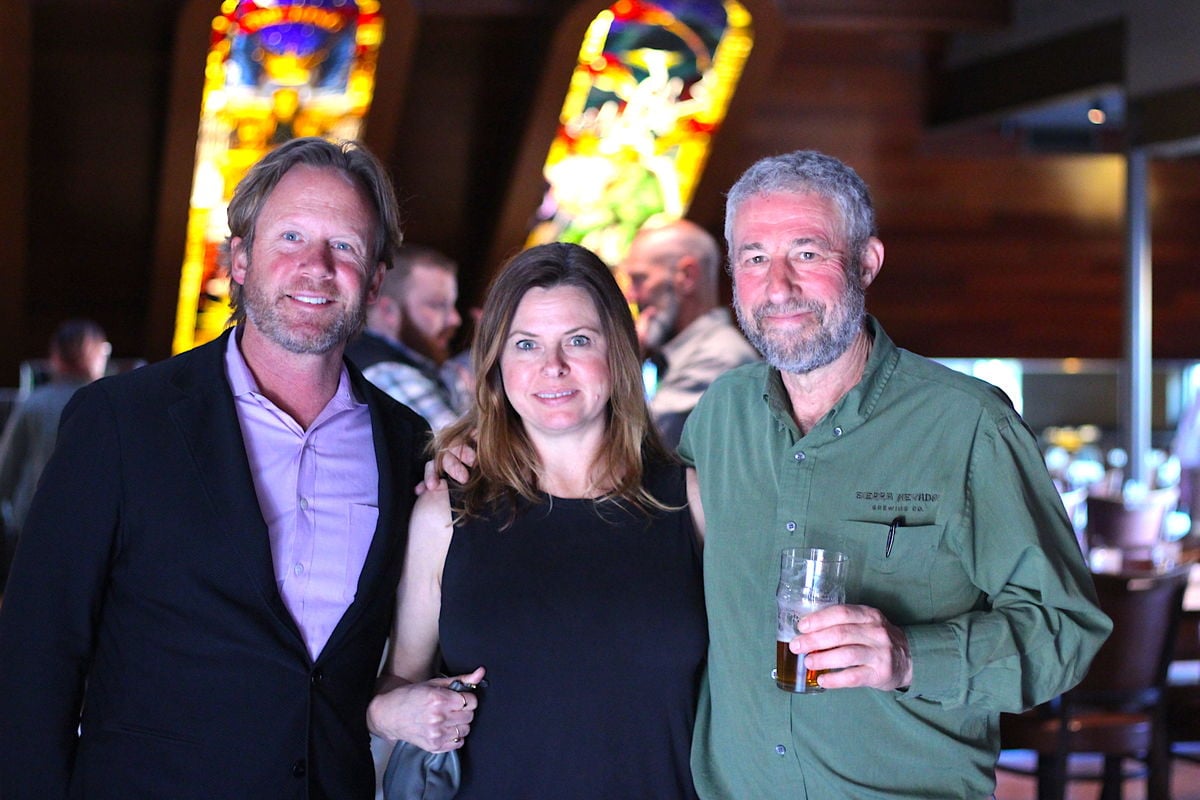
Partnering with Breweries
Asa Hanrahan, beer director for the Flying Saucer, said meeting local brewers is key to keeping a diverse array of craft beers available.
“For example, we have a good relationship with Saint Arnold. I make sure to know every new beer that they produce, including every seasonal brew. That helps us get new beers on the shelves at a reasonable price,” said Hanrahan.
Hanrahan said the Flying Saucers also have a huge amount of respect for Jester King Brewery, with some locations even holding Jester King beer celebration weeks.
Erik Hodgeman, general manager for the Charlotte Flying Saucer, said he has often partnered with some local and well-respected breweries, including Olde Mecklenberg Brewery, NoDa Brewing and Birdsong Brewing Co.
“People like to come see their local brewmaster. Although craft beer wasn’t that prominent in the Carolinas 18 years ago, the appeal of it has definitely grown year by year,” said Hodgeman.
Hodgeman said seasonal events like the Charlotte Flying Saucer’s “Beersgiving,” a deep-fried turkey dinner with all the fixings, also gives the restaurant an opportunity to release rare offerings from breweries across the world.
“We’ve held this event the Saturday before Thanksgiving for nine years in a row. It allows us to offer fall and winter rare seasonals that pair with the feast,” said Hodgeman.
Andrews Cope, social media director for Flying Saucer and Meddlesome Moth, said showcasing the positive experiences customers have at the restaurants also attracts brewers’ attention.
“This year, it’s our goal for Flying Saucer to dedicate each month to a specific brewery, whether they’re national or local. We want to celebrate the breweries that have helped us reach this milestone and celebrate that culture. We’ll plan theme events that celebrate their beers and broadcast these across social media,” said Cope.
Cope said he likes working with brewers and breweries on creative ways for Flying Saucer and Meddlesome Moth to make their experiences “discoverable.” Customers can then find the restaurants through custom video and photo content using popular hashtags.
“This year, we found our various Instagram accounts were being discovered thanks to the Storm Area 51 event. People were finding our content with “#UFO” and “#FlyingSaucer.” I encouraged the Saucer staff to take advantage of the trending hashtags. We had so much traffic because of this ridiculous, funny trend,” said Cope.
Cope said he believes Flying Saucers and Meddlesome Moth succeed because of the dedicated staff and customers.
“Making the Saucers and Moth successful is all about getting to know people, making friends, and getting involved. Many visits to these restaurants have resulted in real-world friendships. Highlighting those friendships and experiences makes for the best social media and marketing. Social media is just word of mouth,” said Cope.
Hodgeman said he believes the reason the Flying Saucers and Meddlesome Moth have lasted so long is because they create a family.
“If customers weren’t friends with someone at the bar when they walked in, they don’t leave that way,” said Hodgeman.
Images Courtesy Flying Saucer and Meddlesome Moth



